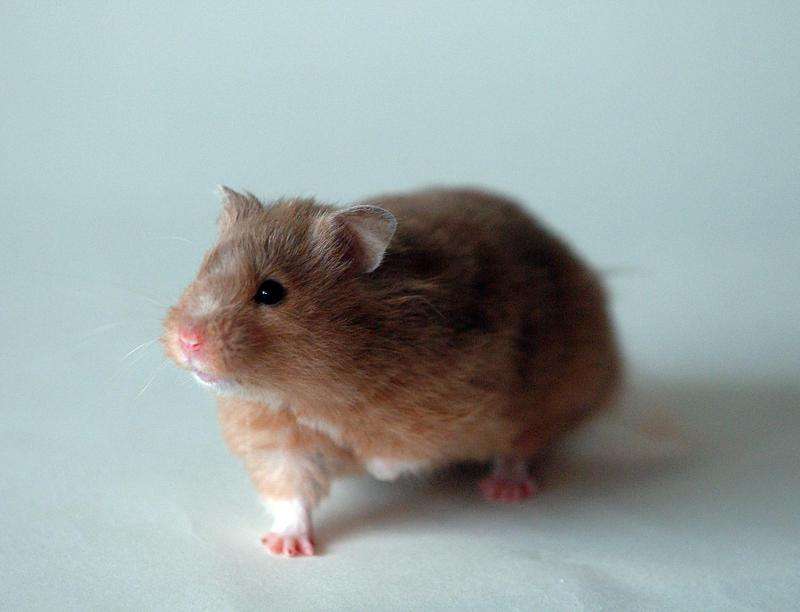July 29, 2015 report
Study shows a way to tell if your hamster is happy

(Phys.org)—A pair of researchers at Liverpool John Moores University in the U.K. believe they have found a way to measure happiness in hamsters. In their paper published in Royal Society Open Science, Emily Bethell and Nicola Koyama describe behavioral studies they carried out with hamsters, what they learned and why they believe their results indicate that hamsters, like other mammals, have feelings, or moods.
Anyone who has ever owned and cared for a pet hamster has faced the same problem—knowing if the creature is happy, or at least content with its living arrangements. Hamsters don't offer much in the way of feedback and because of that Bethell and Koyama looked to see if there might be any other ways to measure their "happiness" level, such as by using what scientists call judgment bias—where an animal (including humans) will tend to behave more optimistically when they are feeling good emotionally. Such studies have been conducted on many species, but not with hamsters.
The new study consisted of training a group of 30 hamsters to associate water bottles placed in a certain locations in their cage with sugar-water, which the hamsters really like, in some places and bitter quinine, which they hate in other areas and then dividing the group into two—half of the group were transferred to really nice cages, with chew toys, wheels, nice wood chips underfoot, etc. The other half lived a much more austere existence. Then, the researchers added more bottles to the original cage, some with sugar-water, some with quinine and others with plain water, and then tested how all 30 of the hamsters reacted. The thinking was that happy hamsters would be more open to testing the new bottles to see if they held something sweet. Sure enough, the hamsters that had been living the good life were much more receptive to trying all the other bottles, while those, presumably less happy with their recent abode, moped and mostly only sipped at the bottles they knew would offer a sweet reward.
The study doesn't prove that half of the hamsters were actually happier or sadder, but it does appear to show that hamsters do better when living under better conditions, which, in retrospect, likely doesn't come as a surprise, because who doesn't?
More information: Happy hamsters? Enrichment induces positive judgement bias for mildly (but not truly) ambiguous cues to reward and punishment in Mesocricetus auratus, Royal Society Open Science, DOI: 10.1098/rsos.140399
Abstract
Recent developments in the study of animal cognition and emotion have resulted in the 'judgement bias' model of animal welfare. Judgement biases describe the way in which changes in affective state are characterized by changes in information processing. In humans, anxiety and depression are characterized by increased expectation of negative events and negative interpretation of ambiguous information. Positive wellbeing is associated with enhanced expectation of positive outcomes and more positive interpretation of ambiguous information. Mood-congruent judgement biases for ambiguous information have been demonstrated in a range of animal species, with large variation in the way tests are administered and in the robustness of analyses. We highlight and address some issues using a laboratory species not previously tested: the Syrian hamster (Mesocricetus auratus). Hamsters were tested using a spatial judgement go/no-go task in enriched and unenriched housing. We included a number of controls and additional behavioural tests and applied a robust analytical approach using linear mixed effects models. Hamsters approached the ambiguous cues significantly more often when enriched than unenriched. There was no effect of enrichment on responses to the middle cue. We discuss these findings in light of mechanisms underlying processing cues to reward, punishment and true ambiguity, and the implications for the welfare of laboratory hamsters.
Journal information: Royal Society Open Science
© 2015 Phys.org














